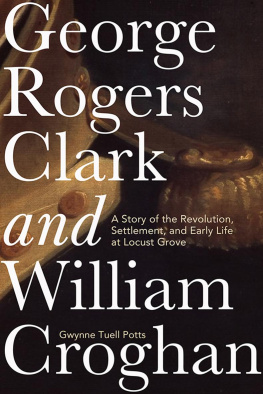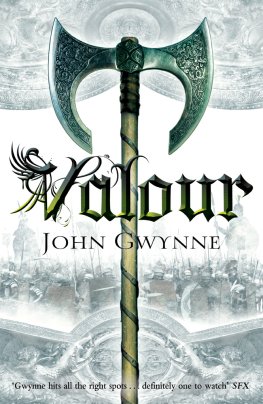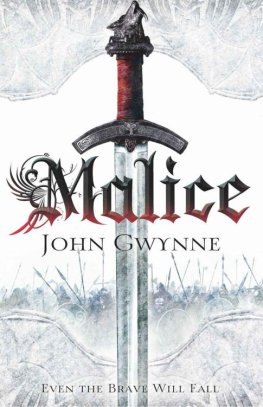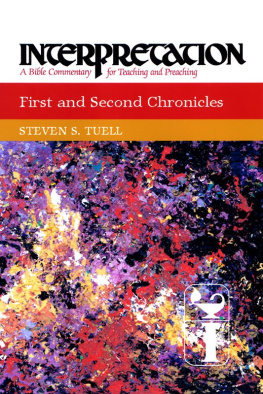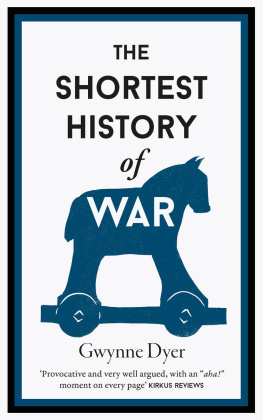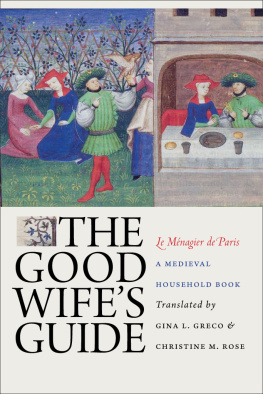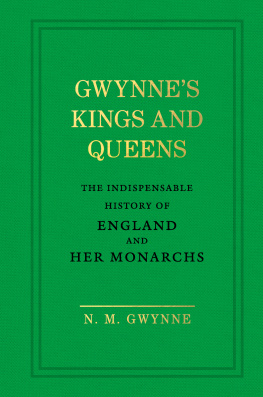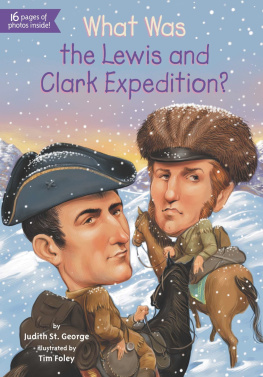George Rogers Clark and William Croghan
George Rogers Clark and William Croghan
A Story of the Revolution, Settlement, and Early Life at Locust Grove
Gwynne Tuell Potts
Due to variations in the technical specifications of different electronic reading devices, some elements of this ebook may not appear as they do in the print edition. Readers are encouraged to experiment with user settings for optimum results.
Copyright 2020 by The University Press of Kentucky
Scholarly publisher for the Commonwealth,
serving Bellarmine University, Berea College, Centre
College of Kentucky, Eastern Kentucky University,
The Filson Historical Society, Georgetown College,
Kentucky Historical Society, Kentucky State University,
Morehead State University, Murray State University,
Northern Kentucky University, Transylvania University,
University of Kentucky, University of Louisville,
and Western Kentucky University.
All rights reserved.
Editorial and Sales Offices: The University Press of Kentucky
663 South Limestone Street, Lexington, Kentucky 40508-4008
www.kentuckypress.com
Unless otherwise noted, photographs are courtesy of Historic Locust Grove, Inc.
Library of Congress Cataloging-in-Publication Data
Names: Potts, Gwynne Tuell, 1948 author.
Title: George Rogers Clark and William Croghan : a story of the Revolution, settlement, and early life at Locust Grove / Gwynne Tuell Potts.
Description: Lexington : The University Press of Kentucky, [2020] | Includes index.
Identifiers: LCCN 2019037372 | ISBN 9780813178677 (hardcover) | ISBN 9780813178691 (pdf) | ISBN 9780813178684 (epub)
Subjects: LCSH: Clark, George Rogers, 17521818. | Croghan, William, 17521823. | United States. Continental ArmyBiography. | Locust Grove (Louisville, Ky. : Estate)History. | PioneersKentuckyBiography. | Louisville (Ky.)Biography. | Louisville (Ky.)History18th century. | United StatesHistoryRevolution, 17751783.
Classification: LCC E207.C5 P68 2020 | DDC 973.3/3092 [B]dc23
LC record available at https://lccn.loc.gov/2019037372
This book is printed on acid-free paper meeting
the requirements of the American National Standard
for Permanence in Paper for Printed Library Materials.
Manufactured in the United States of America.
| Member of the Association of University Presses |
Contents
Authors Note
This work is an extension of my long association with Locust Grove, Major William Croghans Kentucky farm. Much of my initial understanding of George Rogers Clarks role in the Revolutionary West and his relationship with Croghan was the consequence of my conversations with Samuel W. Thomas and the absorption of his thorough research. Sam, clerk of the works during the sites restoration, devoted his life to the study, writing, and telling of Louisvilles past. He and I produced a pictorial book for Historic Locust Grove, Inc., in 2006, which offered a survey of Clarks career and summarized the many stages of Locust Groves development. The publication contained little historical context, as that was not its point, but it remains valuable to local historians who continue to clamor for Sams detailed portrayals of early Louisville, and to the many interpreters who tell the stories connected to Clark. This book, too, contains much of Sams research, cited through the many articles he published and the work he contributed to George Rogers Clark & Locust Grove. His gifts to Louisville, and to Historic Locust Grove in particular, remain timeless and treasured.
Prologue
George Rogers Clarks story is not understood today without some knowledge of the time and place in which he served as the military commander of the West. The time is simple to graspit was the American Revolution and its immediate aftermathbut because Clark chose to remain a westerner rather than join the Continental Army, the place is complicated to explain and was unknown to nearly all of Washingtons troops. The discrepancies between the revolutions carried out on the Atlantic Coast and in the Ohio River valley are so great that many supporters of either sector appear, from time to time, to forget the other even existed. In fact, the two theaters operated tangentially, one under the financial control of the Continental Congress (for they offered Washington little else, and at that, inadequately), and the other directed by the governor of Virginia. That it worked cohesively at any level was the consequence of Washingtons Virginia roots, which allowed Patrick Henry and Thomas Jefferson to communicate freely with the commander-in-chief with little regard to Congress.
The degree to which Clark was isolated and overworked in his attempts to eradicate British influence in the West invites few comparisons between the revolutionary experiences of Clark and any equal within the Continental ranks, and his postrevolution command is unique in American history. George Washington, the man who was tasked with defeating, or at least outlasting the British army on the eastern seaboard, was taxed beyond his known capabilities, but survived it surrounded by a coterie of admirers, a frequently disagreeable but unified officer corps that enjoyed regular periods of down time amid the chaos. Among that corps was Major William Croghan, who arrived in time to participate in Washingtons disastrous New York campaign and stayed seven years to witness Cornwalliss surrender. His revolutionary career acts as a counterpoint to Clarks, and because their divergent paths eventually crossed, and later merged, his service offers an unparalleled complement to Clarks work in the West.
The young men met at Fort Pitt before either considered Britain his enemy. They again were together at Pitt nearly a decade later, one in exile from Washingtons army as he awaited parole, the other attempting a near-impossible capture of Detroit. After they concluded their disparate war services honorably, Clark and Croghan arrived at the Falls of the Ohio River, where they worked together, later lived together, and finally died under a common roof as brothers.
At the end of their lives, Croghan achieved undisputed success in the new western country, while Clark failed to prosper in the land that he had defended and won. Yet, Clark died a conqueror, known even today to schoolchildren and scholars as a key figure in the American Revolution, while Croghan, wealthy and better connected, remains an obscure figure in his own home. Indeed, Croghans house is a national landmark, not because of his own estimable achievements, but because of its association with Clark and his younger brother, General William Clark. By the standards of their time, each was a hero, but neither was an ideal man. Clark and Croghan employed men, women, and children as slave labor, and their lives reflected few of the philosophies that emerged from the Enlightenment they both admired. Neither moved far beyond the commonly held opinions of most westerners regarding Native American peoples, and they essentially died as they lived, as socially traditional men.
By nature a scientist and social historian, Clark was a regular reader of the





